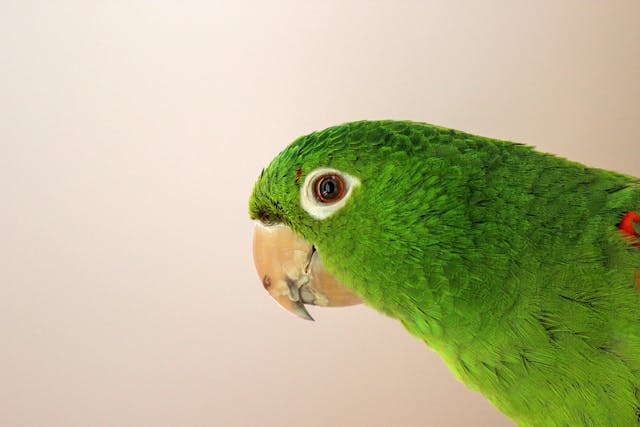Suppose you are given a parrot. But this parrot, like all parrots, is not insightful or intelligent. It just repeats things mindlessly, parroting the phrase 'parrot fashion.' It's bird-brained, after all. What makes this parrot perculiar is that it's poisoned and poisonous. While a regular parrot does not say these sorts of negative things, this one has been trained to explicitly do so, to constantly spout out all the negative thoughts it could possibly have about your life and you. It puts you down every chance it gets, and every chance you see its smile, it raps you with some criticism you couldn't even imagine on your worst day.
Picture this: When you're on your way to work, and your car gets stuck in traffic, and you arrive 10 minutes late. The parrot starts up immediately: "Oh, there you go again. Always late." Can't you stop being late anywhere? How stupid. You'd have had all the time you needed if you'd left earlier. But no, not you. You always mess things up. You're going to come across as useless to your boss. Absolutely pathetic!"

The poisonous voice never stops. It blows everything out of proportion, making you believe that you do not know what you are doing, that you don't deserve or are not even good enough. It scolds you for the decisions you make, for your lack of abilities, for being completely not worth it. But here's the thing: it's still just a parrot. It is a trained parrot, a toxic one, but a parrot nonetheless.
How long would you put up with being treated this way? You would probably cover the cage with a towel to silence it or get rid of the parrot altogether if it was a real parrot in a cage. You may even have taken action if you had been a bird sitting there being berated endlessly?
Yet many of us allow our own minds to abuse us in this way for years and even decades. Just like the poisoned parrot, these negative thoughts stab us with self-criticism, self-doubt, and harsh judgment. We hear the voice, we believe it, and it makes us angry, of course. The trouble is this: it then affects everything we do, how we act, how we communicate, and even the way in which we interpret the world around us. It even changes how we view ourselves over time. We lock ourselves in the poisoned parrot's claws, and it tells us horrible things because we are imprisoned in the poison, and then believe what it says.

But here's the good news: there's an antidote. In the same way, you will cover the cage of the real parrot to make it silent, learn how to notice your own internal parrot and decide not to interact with it. When the negativity starts, recognize it for what it is: "Oh, it's just the parrot again." I don't have to listen to it. It is simply saying nonsense." Turn your attention elsewhere.
So, it's important to understand the parrot is not going to stop quite suddenly. These are things that have been trained for years, thus can be persistent and pervasive. At first, it may squawk the more you try to ignore it and become desperate for attention. But if you keep putting the antidote to the parrot — acknowledging the parrot without engaging, redirecting your mind — then the parrot will get tired. It will die out. You won't hear it anymore. You won't care about it. The parrot may eventually just fly away and leave you, or it might eventually lose its poison altogether.
This internal bully can be recognized and as a result, you take back control. Or if you don't want to listen to the poison parrot, you can decide to create your own supportive, uplifting intenal mental environment.
Adapted from “The Malevolent Parrot” – Kristina Ivings, permission to use for therapy purposes

